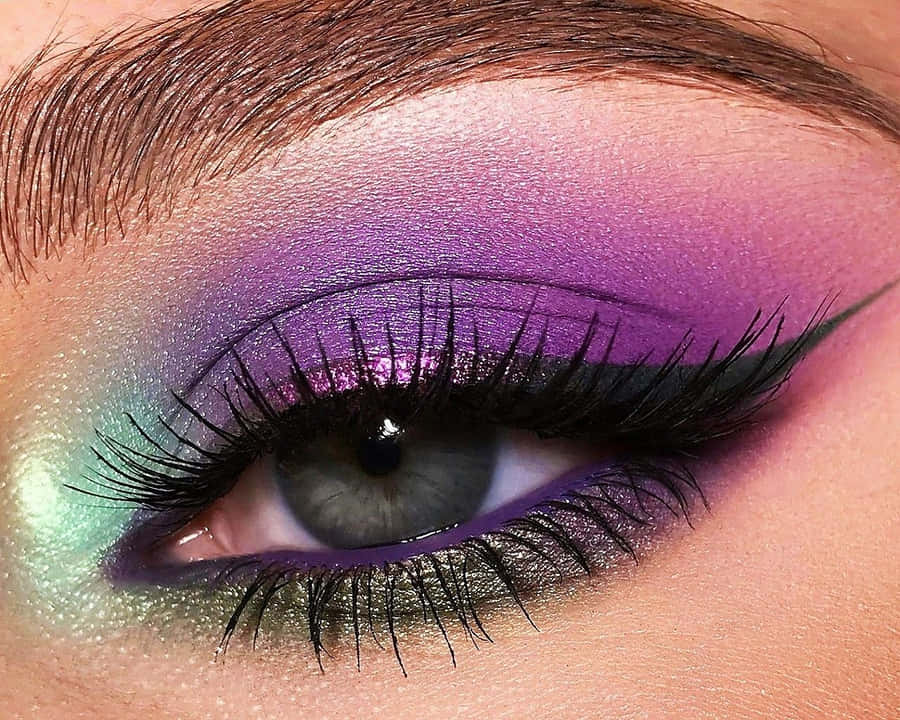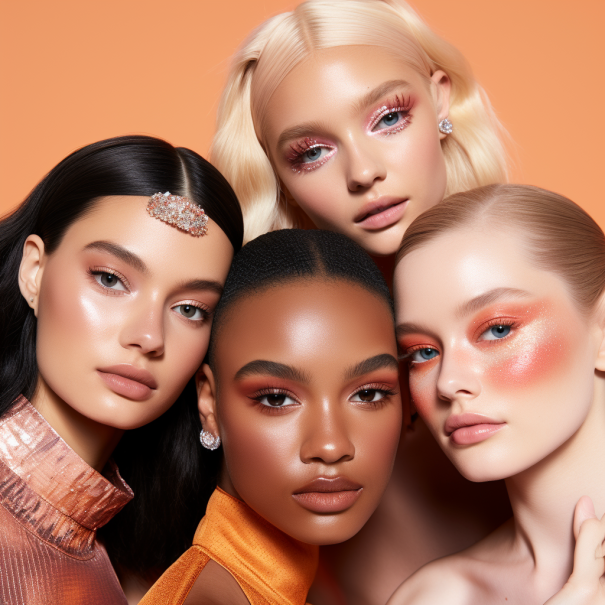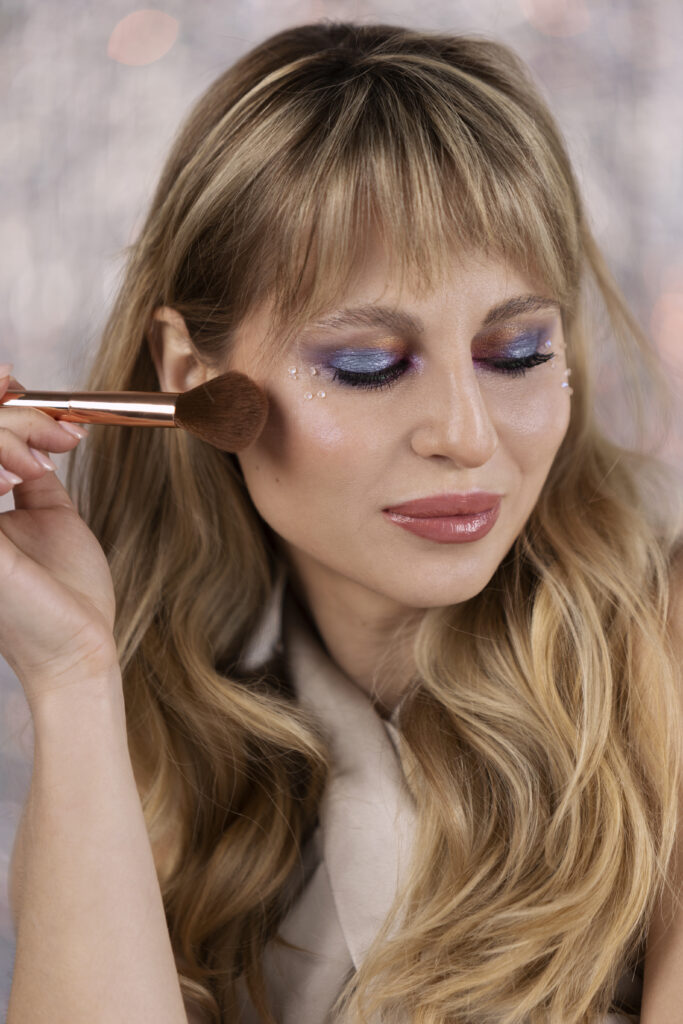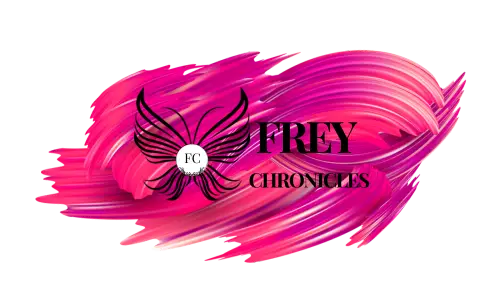Eye makeup is a fantastic way to enhance your features and transform your look. Whether you’re aiming for a subtle enhancement or a bold statement, knowing the basics can make a big difference. Here’s a friendly guide to the dos and don’ts of eye makeup, plus tips on how to play with colors.
The Dos of Eye Makeup
1. Start with a Clean Base
Before applying any makeup, make sure your eyelids are clean. Use an eye primer to create a smooth surface. This helps your eyeshadow go on evenly and stay put longer.
2. Choose the Right Brushes
Invest in good quality brushes. Different brushes have different uses: a flat brush for eyeshadow, a blending brush for smooth transitions, and a fine brush for eyeliner. Using the right tools can make your makeup look professional.
3. Experiment with Eyeshadow Colors
Don’t be afraid to try new colors! Experiment with bold shades like blue or green. Playing with different colors helps you find what suits your eye color and skin tone.
4. Blend Your Eyeshadows
Blending is key to a smooth look. Use a clean, fluffy brush to blend eyeshadow colors together. This prevents harsh lines and creates a seamless finish. Start with lighter shades and build up gradually.
5. Use an Eye Primer
An eye primer is essential for a long-lasting look. It makes your eyeshadow more vibrant and prevents creasing. Apply a thin layer of primer before your eyeshadow.
6. Try Different Eyeliner Styles
Eyeliner can change your eye shape. Experiment with styles like winged liner or tightlining. Different styles can enhance your eye shape and add variety to your look.
7. Apply Mascara Properly
Mascara adds definition to your lashes. Start at the base of your lashes and wiggle the brush upwards. For extra volume, use an eyelash curler before applying mascara.
8. Highlight the Inner Corners
Apply a light, shimmery eyeshadow to the inner corners of your eyes. This brightens and opens up your eyes, making you look more awake.
9. Consider Your Eye Shape
Tailor your eye makeup to your eye shape. For hooded eyes, apply eyeshadow slightly above the crease. For almond-shaped eyes, experiment with different styles to enhance your natural shape.
10. Remove Your Eye Makeup Thoroughly
Always remove your eye makeup before bed. Use a gentle remover or micellar water to avoid irritation and keep your eye area healthy.
The Don’ts of Eye Makeup
1. Skip Eye Primer
Skipping eye primer can lead to creasing and fading. Always use primer to keep your eyeshadow vibrant and in place.
2. Overuse Shimmer
Too much shimmer can make your eyes look cluttered. Use shimmer sparingly, focusing on the inner corners or the center of your eyelids.
3. Apply Eyeliner on the Lower Waterline
Eyeliner on the lower waterline can make your eyes appear smaller. Instead, use a nude or white eyeliner to brighten your eyes. Apply liner close to your lower lash line for definition.
4. Forget to Blend
Blending is crucial for a polished look. Avoid harsh lines by spending time blending your eyeshadows for a smooth finish.
5. Overdo the Eyebrow Pencil
Too much eyebrow pencil can look unnatural. Use light strokes and blend with a spoolie brush for a natural appearance.
6. Use Old or Expired Products
Old or expired makeup can cause irritation. Check expiration dates regularly and replace products as needed.
7. Ignore Your Eye Shape
Not considering your eye shape can lead to unflattering results. Customize your makeup to suit your eye shape for the best effect.
8. Overapply Mascara
Too many coats of mascara can lead to clumpy lashes. Stick to one or two coats and use a lash comb to separate lashes if needed.
9. Neglect Your Lower Lashes
Apply mascara to both upper and lower lashes for a balanced look. Use a smaller brush to avoid smudging.
10. Forget to Set Your Makeup
Use a setting spray or powder to make your eye makeup last all day. This final step helps prevent creasing and fading.
Playing with Colors: Tips and Techniques
1. Start with Neutrals
Begin with neutral shades like beige and taupe. Neutrals provide a versatile base and blend well with vibrant colors.
2. Use a Color Wheel
A color wheel helps choose complementary colors. Complementary colors create a striking contrast, while analogous colors offer a harmonious blend.
3. Try Color Blocking
Color blocking involves using bold colors in separate sections of your eyelids. This technique is fun and can be customized to your style.
4. Embrace Monochromatic Looks
A monochromatic look uses different shades of the same color. This technique creates a cohesive appearance and can be achieved with colors like pink or green.
5. Incorporate Metallics
Metallic eyeshadows add glamour. Apply metallic shades to the center of your eyelids or as accents for a stunning effect.
6. Use Bright Colors Sparingly
Bright colors should be used in moderation. Apply bright shades as accents to keep your look vibrant without overwhelming.
7. Play with Textures
Combining different textures adds dimension. Pair matte eyeshadows with shimmer or satin finishes for a dynamic look.
8. Consider Your Eye Color
Certain colors enhance your eye color. Warm tones can make blue eyes pop, while purple shades can bring out green eyes.
9. Use a Setting Spray
A setting spray helps lock in colorful eyeshadows and prevents fading. It ensures your look stays fresh all day.
10. Practice and Have Fun
Experiment with different colors and techniques. Makeup is about creativity, so enjoy the process and find what works best for you.
Conclusion
Mastering eye makeup involves understanding key techniques, avoiding common mistakes, and exploring colors. By following these dos and don’ts, and experimenting with different shades and styles, you can create stunning looks that highlight your natural beauty.
Embrace the creativity of makeup, and most importantly, have fun with it!





